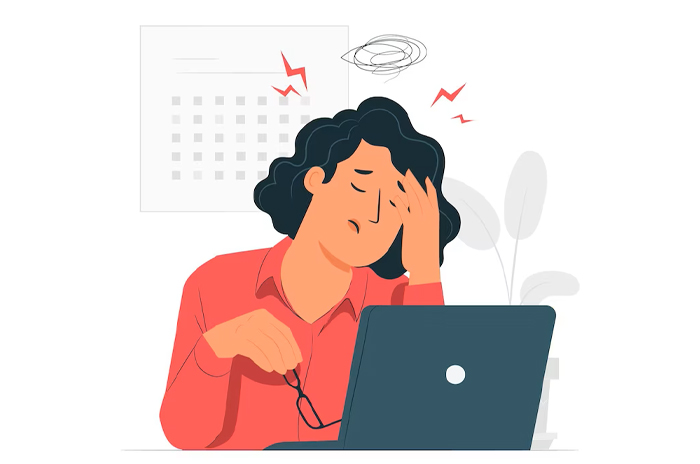Work stress can be a common experience for many individuals, and it can manifest in different ways, including physical, emotional, and psychological symptoms. While a certain amount of stress can be helpful in increasing productivity, too much stress can have adverse effects on mental and physical health. Here are some healthy ways to handle work stress:
Identify the Source of Stress
It is essential to identify the cause of stress in the workplace. This can help individuals understand the nature of their stress and come up with practical solutions to manage it. Some common sources of stress in the workplace include workload, deadlines, conflicts with colleagues, and job insecurity.

Practice Mindfulness
Mindfulness is the practice of being present and fully engaged in the current moment. Practicing mindfulness can help individuals manage stress by reducing anxiety, improving focus and concentration, and increasing self-awareness. Mindfulness techniques include meditation, deep breathing, and yoga.

Exercise Regularly
Exercise is an effective way to manage stress. Physical activity releases endorphins, which can reduce stress and improve mood. Regular exercise can also improve sleep quality, increase energy levels, and boost self-confidence. It is recommended to engage in at least 30 minutes of moderate-intensity exercise per day.

Take Breaks
Taking regular breaks during work can help manage stress levels. This can include short breaks during the workday to stretch, take a walk, or engage in other relaxing activities. It is also essential to take longer breaks, such as vacations or days off, to recharge and prevent burnout.

Prioritize Tasks
Prioritizing tasks can help individuals manage work-related stress by focusing on the most critical tasks and delegating or postponing less urgent tasks. This can help individuals feel more in control and reduce feelings of overwhelm.

Seek Social Support
Seeking social support from colleagues, friends, or family members can help individuals manage work-related stress. Talking to someone about work-related stressors can provide a different perspective, offer practical solutions, and provide emotional support.

Practice Self-Care
Self-care is an essential aspect of managing stress. This can include engaging in activities that promote relaxation, such as taking a warm bath, reading a book, or listening to music. Eating a healthy diet, getting enough sleep, and limiting caffeine and alcohol consumption can also help manage stress levels.

In conclusion, work stress can be challenging to manage, but it is essential to prioritize self-care, exercise regularly, practice mindfulness, take breaks, and seek social support. By adopting healthy coping mechanisms, individuals can improve their ability to handle stress and reduce the negative impact on their health and wellbeing.









